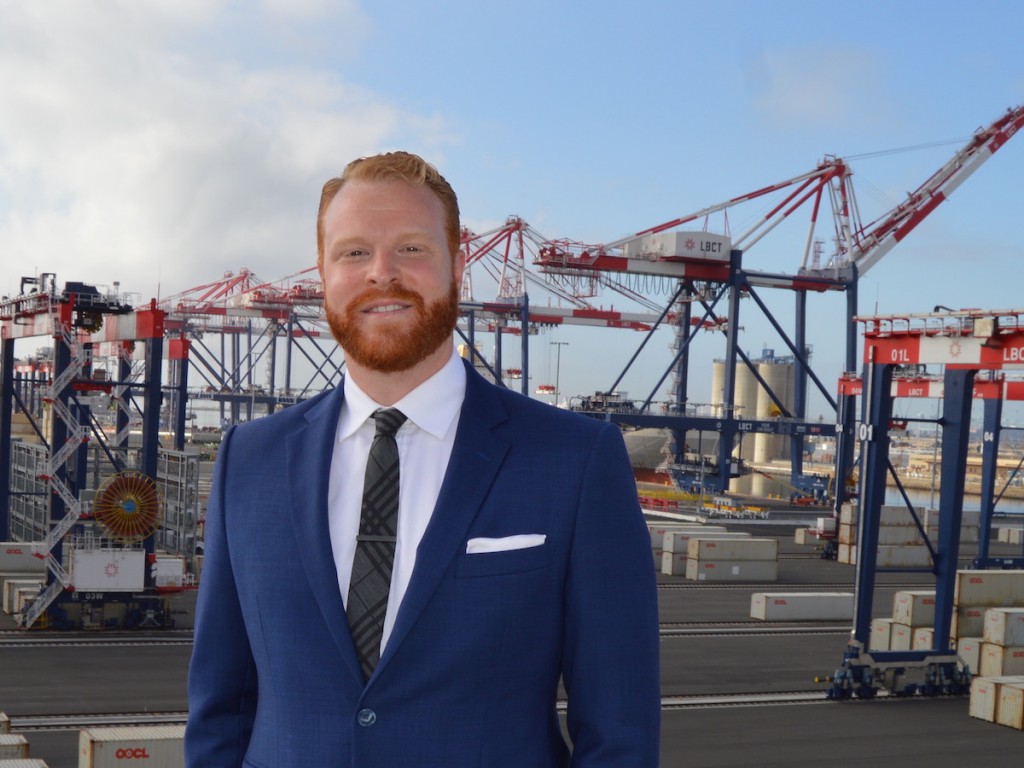Weston LaBar, president of the Harbor Trucking Association (HTA), based in Long Beach, California, told AJOT that recent ocean carrier practices have led to congestion and application of unfair charges for detention and demurrage on truckers and shippers that “will result in the loss of cargo” at the ports of Los Angeles and Long Beach.
LaBar said that, so far during 2020, unreasonable detention and demurrage charges have cost shippers over $100 million in Southern California: “Ocean carriers should be working with shippers, truckers and terminals to reduce detention and demurrage down to zero, instead they’re making money on the practices.”

LaBar said the average time ships spent in port used to be 4-5 days but now ships are spending 7-8 days which slows down the unloading and loading process further.
The result is “that we are failing to move the cargo in a timely manner and in so doing we are demonstrating that the Ports of Los Angeles and Long Beach cannot efficiently move freight which will result in the loss of cargo to other ports on the East Coast and Gulf who can move the freight more efficiently. The ocean carriers don’t care that we lose business, they will just move on to another port.”
Volumes Increase
LaBar admits that volumes have recently increased at the Ports of Los Angeles and Long Beach. He ascribes this to pent-up demand caused by the Covid pandemic dislocations, the need for companies to replenish inventory and due to consumers increasing e-commerce orders as a result of not being able to shop in stores.
LaBar said that ocean carriers responded to the downturn caused by the pandemic by cancelling sailings and reducing the number of ships carrying containers. At the same time, carriers deployed more U.S. sailings from Asia to be directed toward the ports of Los Angeles and Long Beach: “this is the shortest route and so turnaround times back to Asia are faster. This way you can pick up and deliver more Asian imports to the United States rather than transporting containers longer distances from Asia to U.S. East and Gulf coasts.”
As a result of recent global consolidations into new alliances of ocean carriers, there are fewer companies carrying more freight. The result is: “Before 2020, the freight rate for an imported box from Shanghai to LA might have been $1,200. Now it’s over $5700 per box.”
The effects on the U.S. supply chain are: 1) empty containers are not reaching U.S. farmers who need them for export to Asia and 2) smaller importers are having difficulty finding enough containers to transport imported merchandise or components.
LaBar noted that truckers and shippers who make appointments to pick up or drop off containers need several days’ notice to plan. This is designed to increase so-called dual-transactions, “which help truckers (and shippers) keep transportation costs down and increases the efficient flow of truck traffic in and out of marine terminals and ports.”
Plight of Truckers
The plight of truckers and shippers was emphasized in a November 16th letter HTA and others sent to the Federal Maritime Commission (FMC) seeking FMC intervention to force ocean carriers to stop charging what they describe as unfair detention and demurrage penalties and support more efficient truck pick-up and delivery practices:
“Despite efforts by the shipping and trucking industry to promote more dual-transactions to allow chassis to be recycled during the pick-up and drop-off of containers, the ocean carriers have refused to provide advanced notification of empty receiving locations to allow truckers and marine terminals to partner on increasing dual-transactions throughout the port complex. In a letter sent to the Ports of Los Angeles and Long Beach, dated August 25, 2020, a similar coalition of 40 organizations requested ocean carriers to provide at least 48 hours advanced notice of empty receiving locations and for marine terminals to guarantee those appointments. Thus far, no ocean carrier has been willing to provide truckers and shippers with the data necessary to mitigate the challenges in the San Pedro Bay. Subsequent one on one meetings between coalition members and ocean carriers yielded no tangible results and a refusal to help solve these issues. Chassis shortages have also reached critical mass at the Port of NY/NJ (New York and New Jersey), where dwell times have nearly tripled in recent weeks.”
LaBar said that the U.S. Federal Maritime Commission has now begun an investigation into ocean carrier practices.
Peter Friedmann, executive director, Agriculture Transportation Coalition (AGTC) praised the decision of the Federal Maritime Commission on November 18th when he said: “Terrific news for AgTC members and all US exporters, importers, forwarders, truckers: yesterday the Federal Maritime Commission decided to open a formal investigation on our long-sought objective: meaningful enforcement of fair and reasonable ocean carrier and marine terminal practices.”
Friedmann said the FMC investigation will focus on these three areas:
- Detention and Demurrage
- Export Container Availability
- Container Return Practices
Aside from the United States, LaBar said that regulatory authorities in China and South Korea are also looking into unfair ocean carrier practices.

